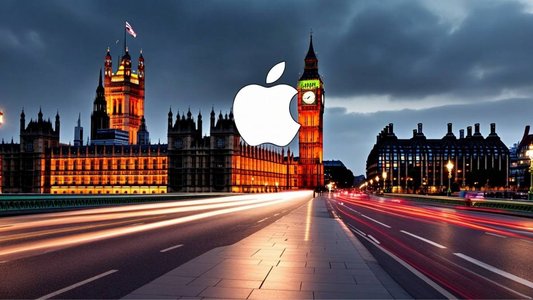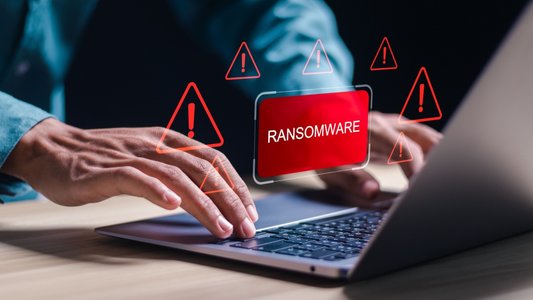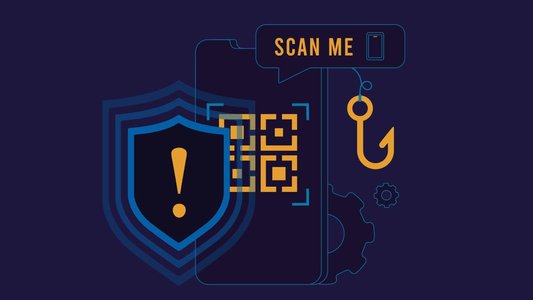Read more about Apple's UK backdoor court battle:
- Experts Dismayed at UK’s Apple Decryption Demands
- Experts Slam Government After “Disastrous” Apple Encryption Move
- US Legislators Demand Transparency in Apple's UK Backdoor Court Fight
The UK has reportedly agreed to drop its controversial demand for Apple to provide a backdoor, according to the US government.
Tulsi Gabbard, the US director of national intelligence, announced the U-turn in a post on X on August 19.
She said it was the result of discussions between the US and UK governments. She added that by this decision, the US government ensured “Americans' private data remains private and our Constitutional rights and civil liberties are protected.”
Rumors of the UK’s Home Office asking for access to Apple’s end-to-end encrypted (E2EE) data stored in iCloud service under the Investigatory Powers Act (IPA) emerged in February 2025.
While the UK government did not confirm this demand at the time, it became clear that it was undergoing a legal battle with Apple in March when a bipartisan group of five US Members of Congress and Senators called for the Investigatory Powers Tribunal (IPT), part of the UK’s Home Office, to “remove the cloak of secrecy related to notices given to American technology companies by the UK.”
Apple Removed E2EE Feature in the UK
In April, the IPT issued a judgment saying it would make the “bare details of the case” between Apple and the UK government public.
Meanwhile, Apple temporarily met the UK’s legal demand by removing iCloud’s optional end-to-end encryption (E2EE), called Advanced Data Protection (ADP), for UK accounts.
In practice, the UK’s legal order – a technical capability notice (TCN) – wouldn’t grant authorities secret backdoor access to iCloud data. Instead, it would have compelled Apple to preserve the existing ability to comply with court-approved warrants demanding user content, ensuring law enforcement can extract encrypted data when legally authorized.
Nevertheless, Gabbard warned the demand “would have enabled access to the protected encrypted data of American citizens and encroached on our civil liberties.”
UK Government Demand Could “Create a Precedent,” Experts Warn
According to Nathan Webb, principal consultant at Acumen Cyber, although very controversial, the UK government’s move was “not the first demand Apple had received to build a backdoor into encryption capabilities and was portrayed as a protective measure to gain intelligence on criminals and terrorists.”
He also warned that the removal of iCloud’s ADF feature in the UK already posed a big risk.
“Given that nearly 50% of the UK utilize Apple mobile devices, and likely make use of an impacted Apple iCloud service (for example, Photos, Reminders and Notes), providing the UK government access to this data had the potential to result in a data breach on a scale the world has never experienced before,” he said.
Webb hopes that now the government has backed down the feature will be made re-available, so that UK users can benefit from the advanced protections of E2EE.
Nic Adams, co-founder and CEO of 0rcus, believes the reversal was less about Apple’s legal stance and more about pressure from Washington.
“US officials were concerned that forcing a backdoor in the UK would create a global precedent, ultimately making it harder to argue against similar demands from China, Russia, and other adversaries,” he argued.
“Any mandated access point would instantly become a new vulnerability. Once engineered, the tool can be cloned, stolen, or leaked, and would undermine every user worldwide. Simply put, there is no such thing as a backdoor for exclusively good actors,” he said.
Read more about Apple's UK backdoor court battle:
- Experts Dismayed at UK’s Apple Decryption Demands
- Experts Slam Government After “Disastrous” Apple Encryption Move
- US Legislators Demand Transparency in Apple's UK Backdoor Court Fight
The UK has reportedly agreed to drop its controversial demand for Apple to provide a backdoor, according to the US government.
Tulsi Gabbard, the US director of national intelligence, announced the U-turn in a post on X on August 19.
She said it was the result of discussions between the US and UK governments. She added that by this decision, the US government ensured “Americans' private data remains private and our Constitutional rights and civil liberties are protected.”
Rumors of the UK’s Home Office asking for access to Apple’s end-to-end encrypted (E2EE) data stored in iCloud service under the Investigatory Powers Act (IPA) emerged in February 2025.
While the UK government did not confirm this demand at the time, it became clear that it was undergoing a legal battle with Apple in March when a bipartisan group of five US Members of Congress and Senators called for the Investigatory Powers Tribunal (IPT), part of the UK’s Home Office, to “remove the cloak of secrecy related to notices given to American technology companies by the UK.”
Apple Removed E2EE Feature in the UK
In April, the IPT issued a judgment saying it would make the “bare details of the case” between Apple and the UK government public.
Meanwhile, Apple temporarily met the UK’s legal demand by removing iCloud’s optional end-to-end encryption (E2EE), called Advanced Data Protection (ADP), for UK accounts.
In practice, the UK’s legal order – a technical capability notice (TCN) – wouldn’t grant authorities secret backdoor access to iCloud data. Instead, it would have compelled Apple to preserve the existing ability to comply with court-approved warrants demanding user content, ensuring law enforcement can extract encrypted data when legally authorized.
Nevertheless, Gabbard warned the demand “would have enabled access to the protected encrypted data of American citizens and encroached on our civil liberties.”
UK Government Demand Could “Create a Precedent,” Experts Warn
According to Nathan Webb, principal consultant at Acumen Cyber, although very controversial, the UK government’s move was “not the first demand Apple had received to build a backdoor into encryption capabilities and was portrayed as a protective measure to gain intelligence on criminals and terrorists.”
He also warned that the removal of iCloud’s ADF feature in the UK already posed a big risk.
“Given that nearly 50% of the UK utilize Apple mobile devices, and likely make use of an impacted Apple iCloud service (for example, Photos, Reminders and Notes), providing the UK government access to this data had the potential to result in a data breach on a scale the world has never experienced before,” he said.
Webb hopes that now the government has backed down the feature will be made re-available, so that UK users can benefit from the advanced protections of E2EE.
Nic Adams, co-founder and CEO of 0rcus, believes the reversal was less about Apple’s legal stance and more about pressure from Washington.
“US officials were concerned that forcing a backdoor in the UK would create a global precedent, ultimately making it harder to argue against similar demands from China, Russia, and other adversaries,” he argued.
“Any mandated access point would instantly become a new vulnerability. Once engineered, the tool can be cloned, stolen, or leaked, and would undermine every user worldwide. Simply put, there is no such thing as a backdoor for exclusively good actors,” he said.
No tags.





































